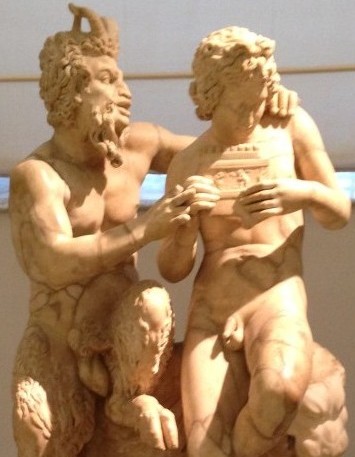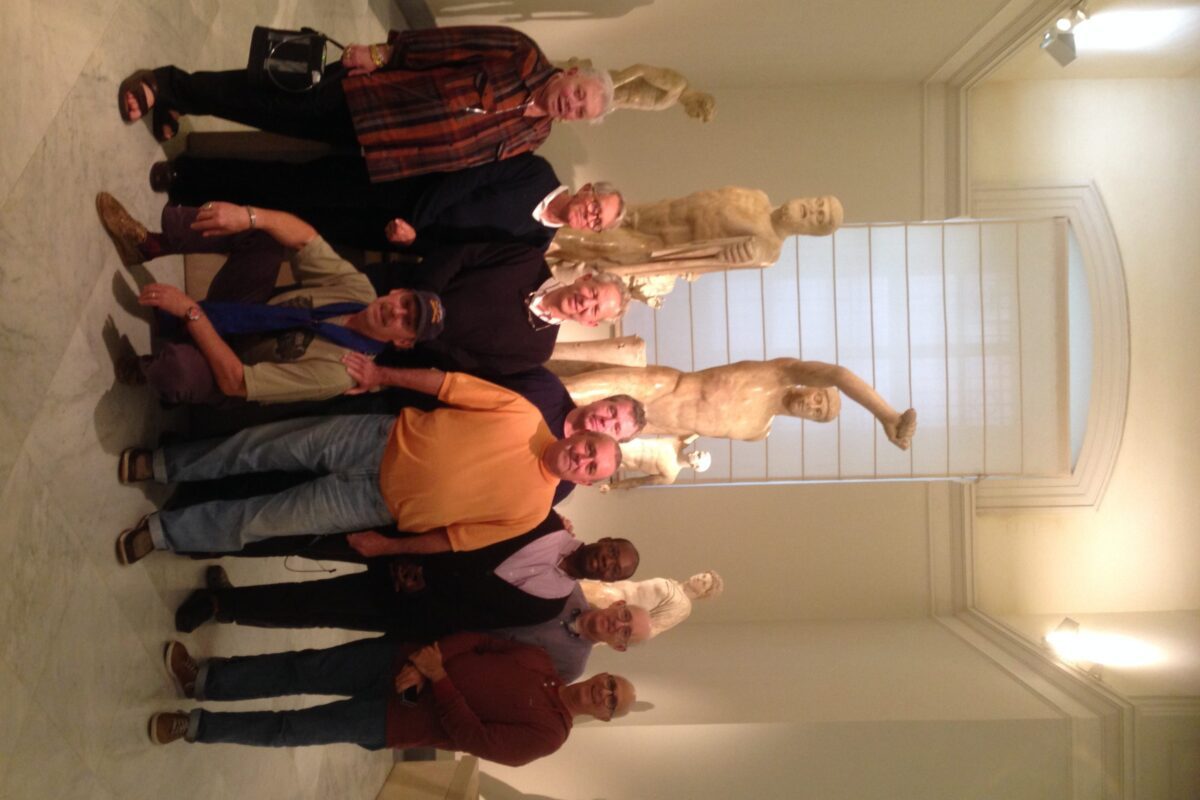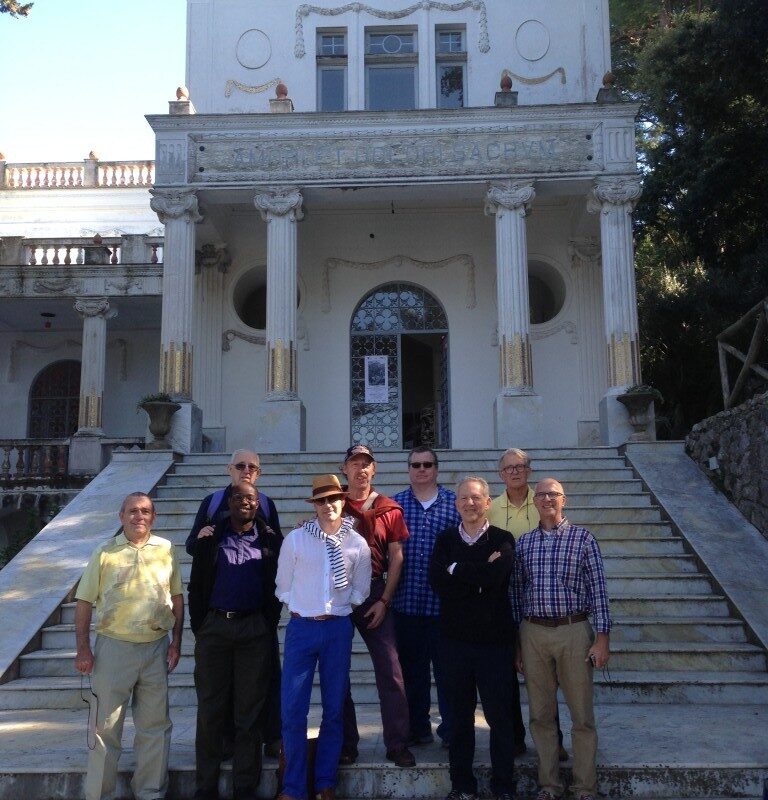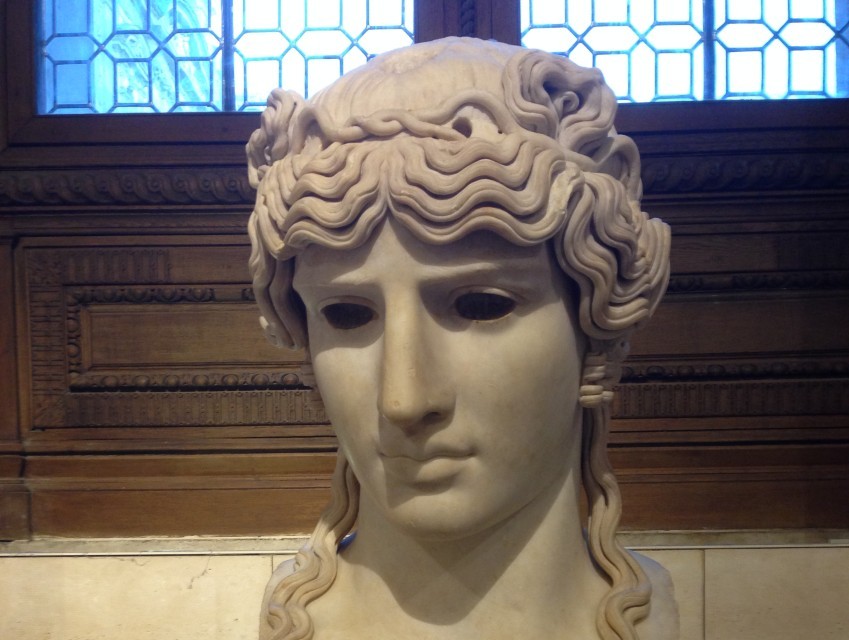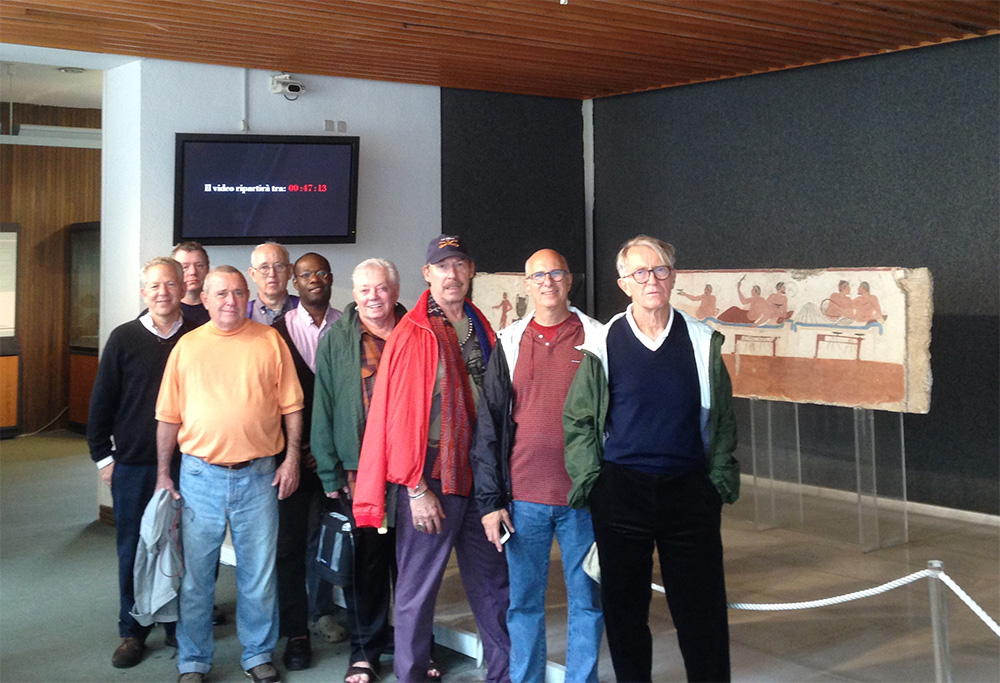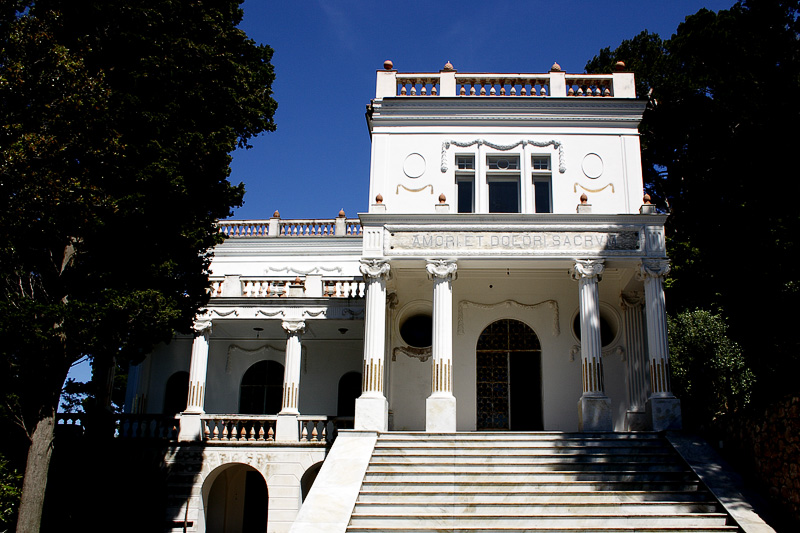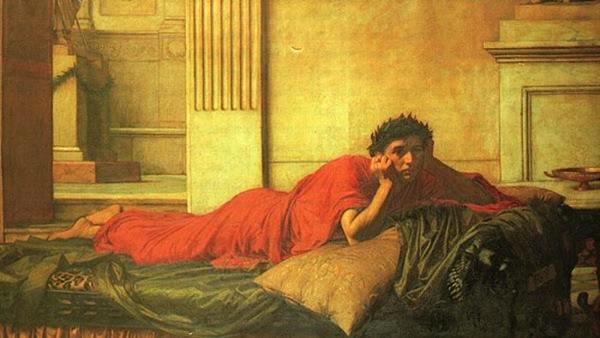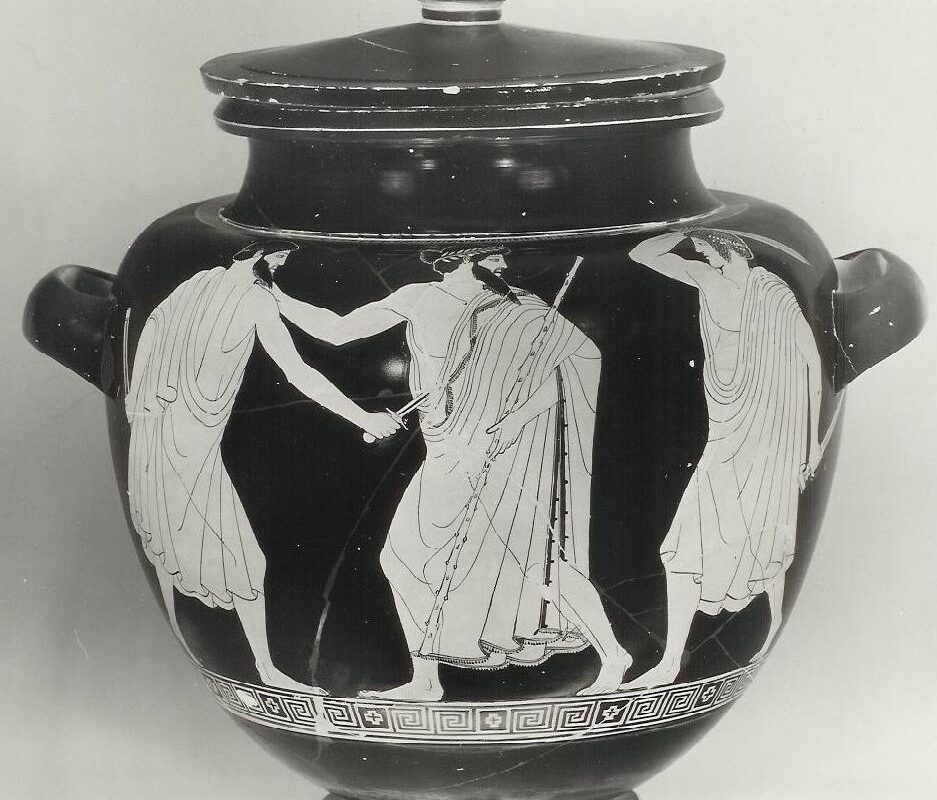When Oscar Wilde Tours designs gay history tours, we always try to show people the gay side of famous places. We do for instance “gay secrets” tours of Westminster Abbey, the Louvre, and the Vatican. But we also try to take people to some places that are important in gay history and that they might otherwise never think to visit. Bletchley Park is an example, where Alan Turing (as in The Imitation Game) developed the machine that broke secret German codes in World War II and at the very least hastened the victory over Hitler. Another of these places is the Naples Archaeological Museum. Most people these days seem to skip Naples on their way from Rome to Pompeii (another place with great gay history), but Naples merits a stop for a number of reasons. On our gay Italy tour, we spend 3 days exploring Naples and its surroundings (Pompeii, Paestum, Capri).
Shady Ladies Tour, an intro
People often ask how I went from doing gay secrets tours to shady ladies. How did a gay historian get interested in the history of female prostitution? First of all, a gay historian works on the history of sexuality, so the history of heterosexuality is not very far away from his topic, intellectually speaking. But it has much more to do with my tours of the Metropolitan Museum.
Gay History of England, Sights to See
England is a great country for the traveler interested in gay history and culture. London is one of the great gay cities, and there are also places of gay historical interest spread around the country, from Sissinghurst in the south to Castle Howard in the north. The great thing about the gay history of England is that there are a number of famous and relatively well-documented people in English history who loved people of their own sex. These include at least one king, James I, a number of aristocrats of note, and many authors, such as Shakespeare, Oscar Wilde, and Virginia Woolf.
Gay History In Greece
Since I wrote my blog post last week about my gay history explorations, people have been asking me to say something more about gay history in Greece. And this is very much on my mind, as I am leading Oscar Wilde Tours’ gay history and art tour in Greece in only 3 or 4 months (https://www.oscarwildetours.com/gay-greece-travel-tours/)!
Greece is of course one of the great countries for gay history, because some form or forms of same-sex love were customary in the ancient Greek world. And lots of evidence remains—if you know where to look!
Gay History All Over the World
This week brought Oscar Wilde Tours a big honor: we won the Travvy silver award for best LGBT tour operator. Pretty amazing, when you think that we are just starting our second season! I think and hope it means that people in the travel industry find our concept exciting—gay travel focusing on gay history and art— and also that they are hearing good things about our tours in New York, Ireland, and Italy. As a result of the prize, I’ve been thinking about what I have learnt in the last 2 years, while starting this company. I’ve been wondering which of all the things I’ve discovered in the cities are my favorites: the things that resonate with my imagination and have enlarged my sense of gay history.
Gay History and Art in Paris–and the Louvre
Last month I was in Paris to do some research for our gay history and art tour of London and Paris tour in this coming August, and wow did I hit gold. We had always planned on including a tour of the Louvre: several local guides offer a tour of the Louvre following the theme of male beauty through the collection, and we intended to have one of them do that for us.
Gay history and art tour of Italy launched!
For a couple of days, I’ve been thinking I need to write a summary blog post about the first gay history and art tour of Italy. But how to talk about 10 intense days of touring? Should I talk about the people? I’d have to ask for everyone’s permission to tell you about the fascinating cast of characters; but I can tell you that it was a very lively group and gratified me in particular by how well they got along. I remember how happy I was when I passed the bar at our gorgeous hotel overlooking the bay of Sorrento and saw them all having drinks together. It was that way right until the last breakfast.
Gay History on Capri
Our gay history and art tour of Italy is starting in 5 days, so I’m in Italy making a few last-minute arrangements. And in the meantime, I’m doing a bit of gay history exploration–today an exploration of gay Capri. I went out to Capri mainly to look into the ruins of Emperor Tiberius’ villa. Tiberius, Augustus’ stepson and successor, has a miserable reputation. The main problem seems to be that he hated being Emperor; plus he didn’t have much charisma–and Augustus was a hard act to follow. In the end, he retired to a villa on Capri for the last ten years of his reign. Frankly, my suspicion is that like Greta Garbo, he wanted to be alone.
Nero’s Palace and Rome’s Gay History
Who was Rome’s gayest Emperor? That’s a tough one. There were rumors about almost every Emperor: Julius Caesar’s soldiers for instance joshingly called him “the husband of every wife and the wife of every husband.” One of the top competitors, however, is certainly Nero, who was said among other things to have married two of his male slaves:
Gay Heroes of Ancient Greece
Check out my latest blogpost for the Gay and Lesbian Review. It’s about Harmodius and Aristogeiton. Along with Achilles and Patroclus in the Iliad (whom the ancient Greeks mostly saw as a couple), Harmodius and Aristogeiton were the biggest gay heroes of ancient Greece . Harmodius and Aristogeiton were a Greek-style male-male couple, who assassinated Hipparchus, brother of the Athenian tyrant Hippias. This may have been a private act of revenge, and it happened more than ten years before the end of the tyranny. But the Athenians thought of them as the founders of the democracy. Their story shows how different cultural attitudes toward gay love can be. The Athenians wanted a male-male couple to have founded the democracy, because they considered a certain kind of male-male love the ideal matrix for courage and loyalty to your fellow soldier!

